Early in my chicken-keeping adventures, I learned the hard way that there is a big difference between chicken wire and hardware cloth. I now understand that chicken wire is intended to keep chickens confined to an area, not to prevent predators from reaching chickens. My failure to appreciate the differences prior to constructing our first run was costly and my hope is that others can learn from my mistake.
I was no more than 5 weeks into chicken-keeping when I saw the hawk pictured above, peering in at my new pets. Feeling confident that my flock was locked safely in their run, I dashed to grab my camera to snap this shot. What I did not know at that time was that he had already reached through the chicken wire with his razor-sharp talons, taking the life of one of my 5 week old Silkies. We immediately reinforced the run with hardware cloth and no predator has breached our coops’ security since then.
When considering fencing options for the coop and run, as a general rule, the smaller the openings and the lower gauge the metal, the better security it will provide. This hawk was able to reach in through the large holes of the chicken wire to grasp the chick, a feat he would not have succeeded in had there been hardware cloth in place. Hardware cloth is more expensive than chicken wire, but the initial investment is priceless given the heartache and financial losses it can ultimately prevent.
CHICKEN WIRE
Chicken wire, also known as hex netting, is a twisted steel wire mesh with hexagonal openings that can be galvanized or PVC coated.1 A hungry and determined predator, including but not limited to raccoons and some dogs, can tear through chicken wire with relative ease. It is not recommended as security fencing for chicken coops and runs.
Chicken wire is very flexible and good for making temporary structures designed to keep chickens confined, but it will not stop predators from gaining access to chickens.
HARDWARE CLOTH
Hardware cloth is wire mesh that consists of either woven or welded wires in a square or rectangular grid that is available in galvanized, stainless steel and bare steel.2 It is manufactured from a stronger gauge metal than chicken wire, (the smaller the gauge, the stronger the mesh) making it a much better choice for flock protection. 1/2″ to 1/4″ galvanized hardware cloth is typically recommended for coops and chicken runs.
HARDWARE CLOTH INSTALLATION BEST PRACTICES
1. Bury hardware cloth to deter diggers. To protect chickens from predators such as raccoons and dogs, hardware cloth should be buried at least 12 inches into the ground around the perimeter of the coop and run OR buried underneath the floor of the coop and run.
2. Cover all windows with hardware cloth.
3. Secure hardware cloth with screws and washers. Staples are easily defeated by pushing or pulling.
4. Seal all openings larger than one inch with hardware cloth. Minks and weasels can squeeze through very small openings and kill many chickens in a very short period of time.
Sources:
1 Direct Metals
2 Direct Metals
Both illustrations of chicken wire and hardware cloth are from meshdirect.co.uk
Kathy Shea Mormino
Affectionately known internationally as The Chicken Chick®, Kathy Shea Mormino shares a fun-loving, informative style to raising backyard chickens. …Read on


shop my SPONSORS
Early in my chicken-keeping adventures, I learned the hard way that there is a big difference between chicken wire and hardware cloth. I now understand that chicken wire is intended to keep chickens confined to an area, not to prevent predators from reaching chickens. My failure to appreciate the differences prior to constructing our first run was costly and my hope is that others can learn from my mistake.
I was no more than 5 weeks into chicken-keeping when I saw the hawk pictured above, peering in at my new pets. Feeling confident that my flock was locked safely in their run, I dashed to grab my camera to snap this shot. What I did not know at that time was that he had already reached through the chicken wire with his razor-sharp talons, taking the life of one of my 5 week old Silkies. We immediately reinforced the run with hardware cloth and no predator has breached our coops’ security since then.
When considering fencing options for the coop and run, as a general rule, the smaller the openings and the lower gauge the metal, the better security it will provide. This hawk was able to reach in through the large holes of the chicken wire to grasp the chick, a feat he would not have succeeded in had there been hardware cloth in place. Hardware cloth is more expensive than chicken wire, but the initial investment is priceless given the heartache and financial losses it can ultimately prevent.
CHICKEN WIRE
Chicken wire, also known as hex netting, is a twisted steel wire mesh with hexagonal openings that can be galvanized or PVC coated.1 A hungry and determined predator, including but not limited to raccoons and some dogs, can tear through chicken wire with relative ease. It is not recommended as security fencing for chicken coops and runs.
Chicken wire is very flexible and good for making temporary structures designed to keep chickens confined, but it will not stop predators from gaining access to chickens.
HARDWARE CLOTH
Hardware cloth is wire mesh that consists of either woven or welded wires in a square or rectangular grid that is available in galvanized, stainless steel and bare steel.2 It is manufactured from a stronger gauge metal than chicken wire, (the smaller the gauge, the stronger the mesh) making it a much better choice for flock protection. 1/2″ to 1/4″ galvanized hardware cloth is typically recommended for coops and chicken runs.
HARDWARE CLOTH INSTALLATION BEST PRACTICES
1. Bury hardware cloth to deter diggers. To protect chickens from predators such as raccoons and dogs, hardware cloth should be buried at least 12 inches into the ground around the perimeter of the coop and run OR buried underneath the floor of the coop and run.
2. Cover all windows with hardware cloth.
3. Secure hardware cloth with screws and washers. Staples are easily defeated by pushing or pulling.
4. Seal all openings larger than one inch with hardware cloth. Minks and weasels can squeeze through very small openings and kill many chickens in a very short period of time.
Sources:
1 Direct Metals
2 Direct Metals
Both illustrations of chicken wire and hardware cloth are from meshdirect.co.uk




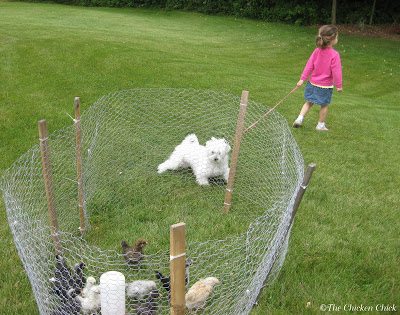
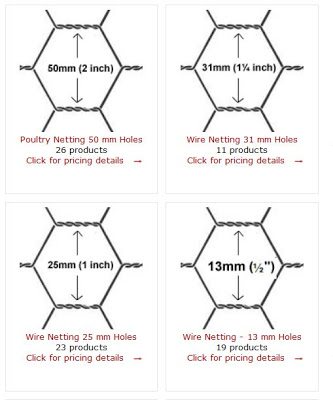
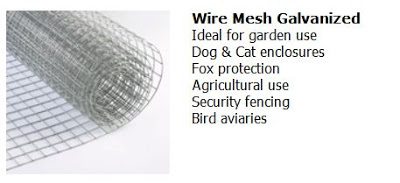

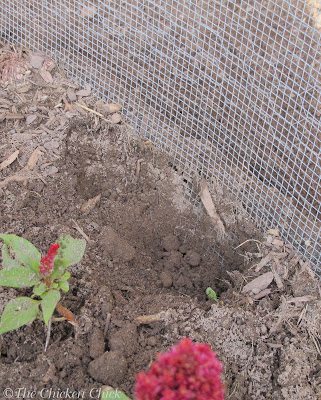
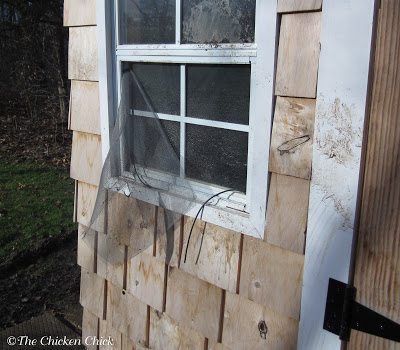
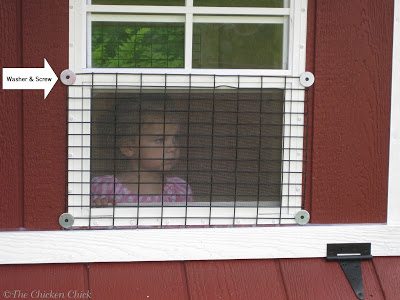
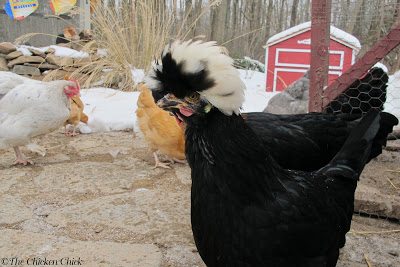















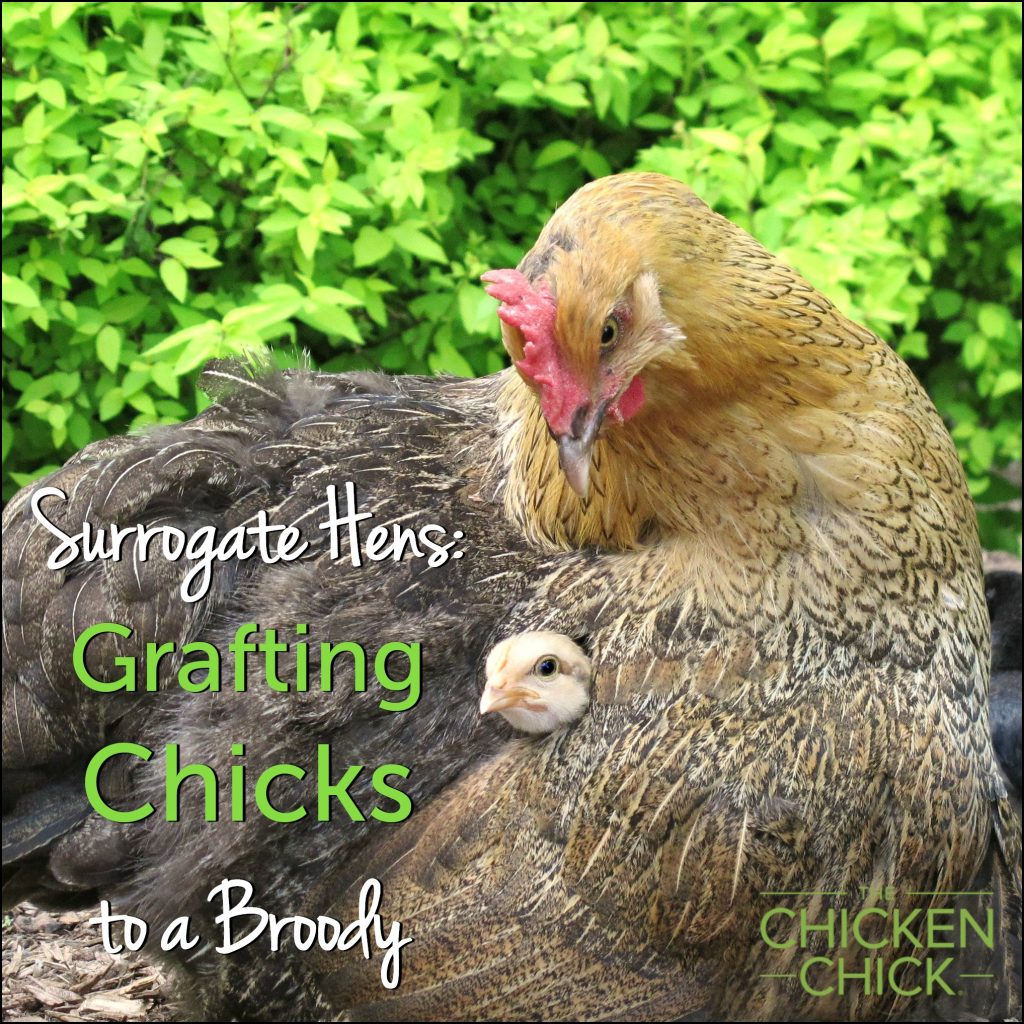
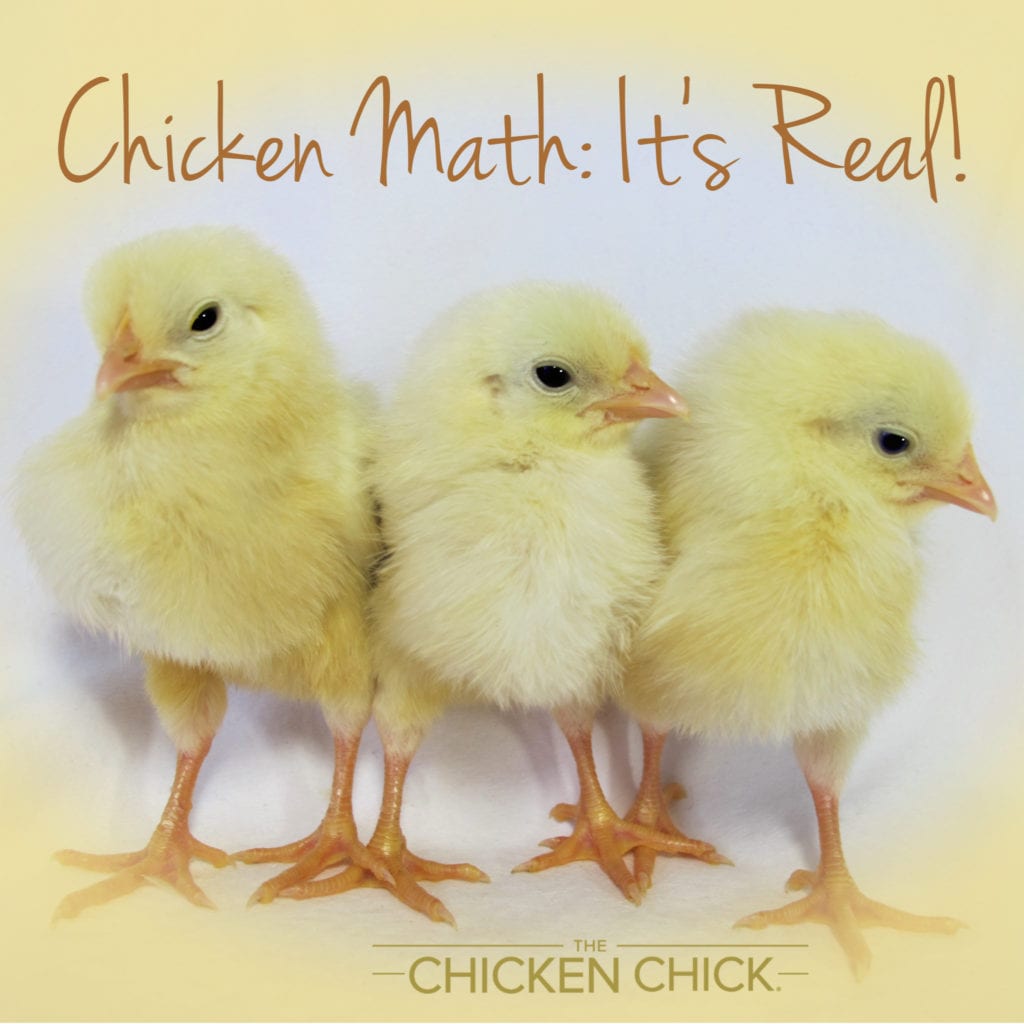









My daughter built the enclosure with 2′ by 4′ aluminum fencing. I’ve lost several chicks due to the raccoon finding week spots in the defense (openings) that I fixed.. Today I found another killed bird and feathers all over the place and on the other side of the fence. I also heard loud, “Ki! ki!” screams. Is it possible the hawk got inside through the 2×4 mesh? I immediately put the remaining three chicks for adaption… my heart will break if another death happens!
Hi All, Although new to chicken keeping. I have learned from experience of others… I hear foxes screaming all around my property, have seen them in the daytime, hear owls nearby, and have seen racoons and hawks. There is a well fed(with out rotten leftovers) possum outside right now! I think it’s a she and I hope she brings her babies on her back this summer! I sleep well. I have electric poly wire fence, on both chain link and welded wire pens. Predators can not get into the run to climb up or dig under with out hitting a… Read more »
Really impressive info you shared here and I enjoyed a lot this info.
Chain Link Fencing Works Chennai
Thank you, what an awesome job you have done, I now have you as one of my favorites!
Thank you for all your wonderful information. We started our chicken adventure in July and love the birds. Last night a raccoon breached our barn and killed Gigi, a gorgeous Polish Bantam; Tootsie, a regal silkie rooster; and Daisy, a sweet white version of your Rachel. I have 3 hens left and it is sad. What reputable hatchery would you recommend? My flock was a rescue from a lady that purchased them without checking zoning and had to give them up. My husband and I took on the challenge of raising the chickens and have enjoyed them immensely. The 6… Read more »